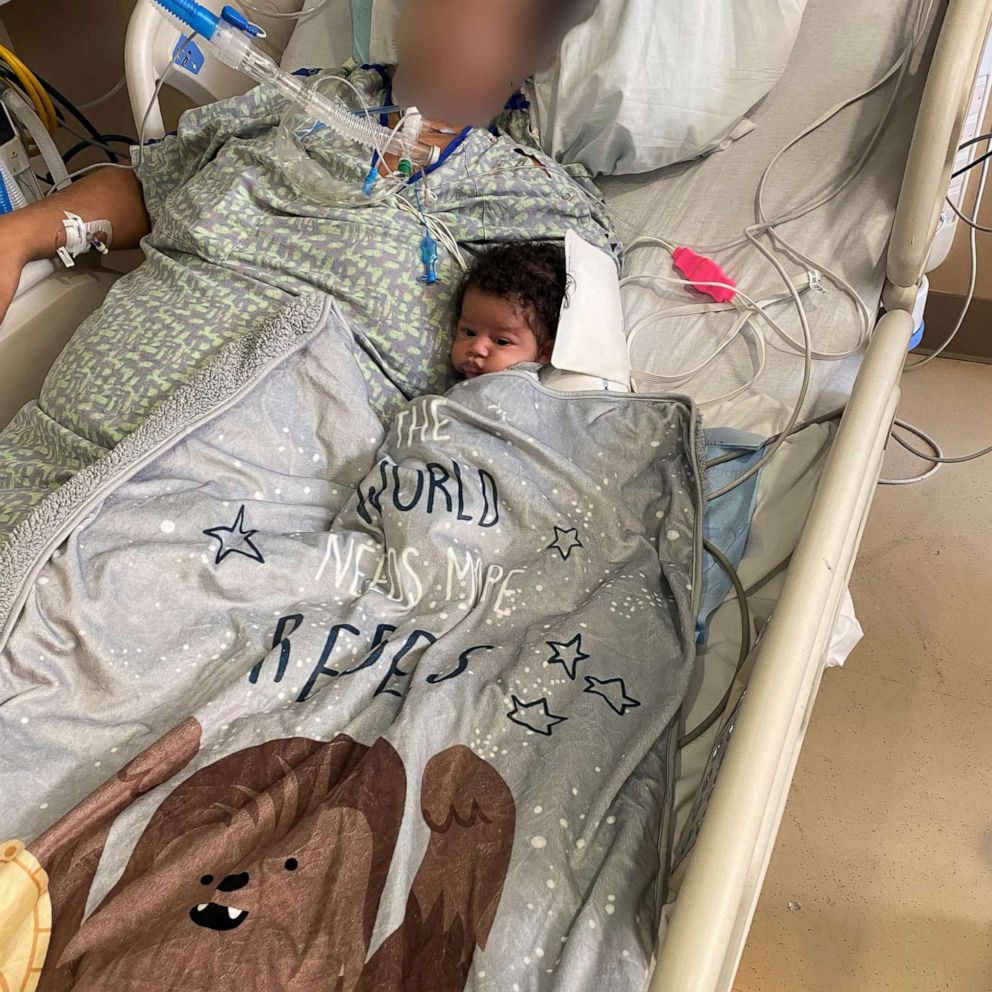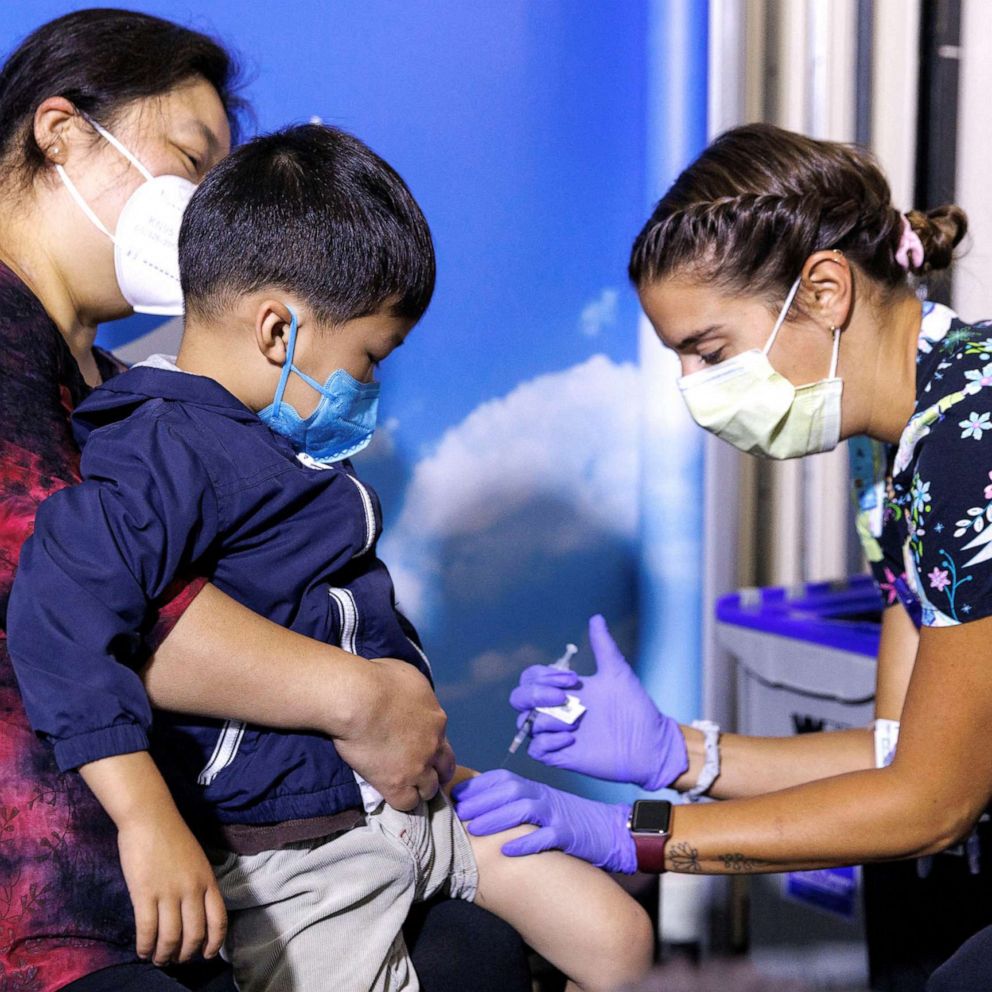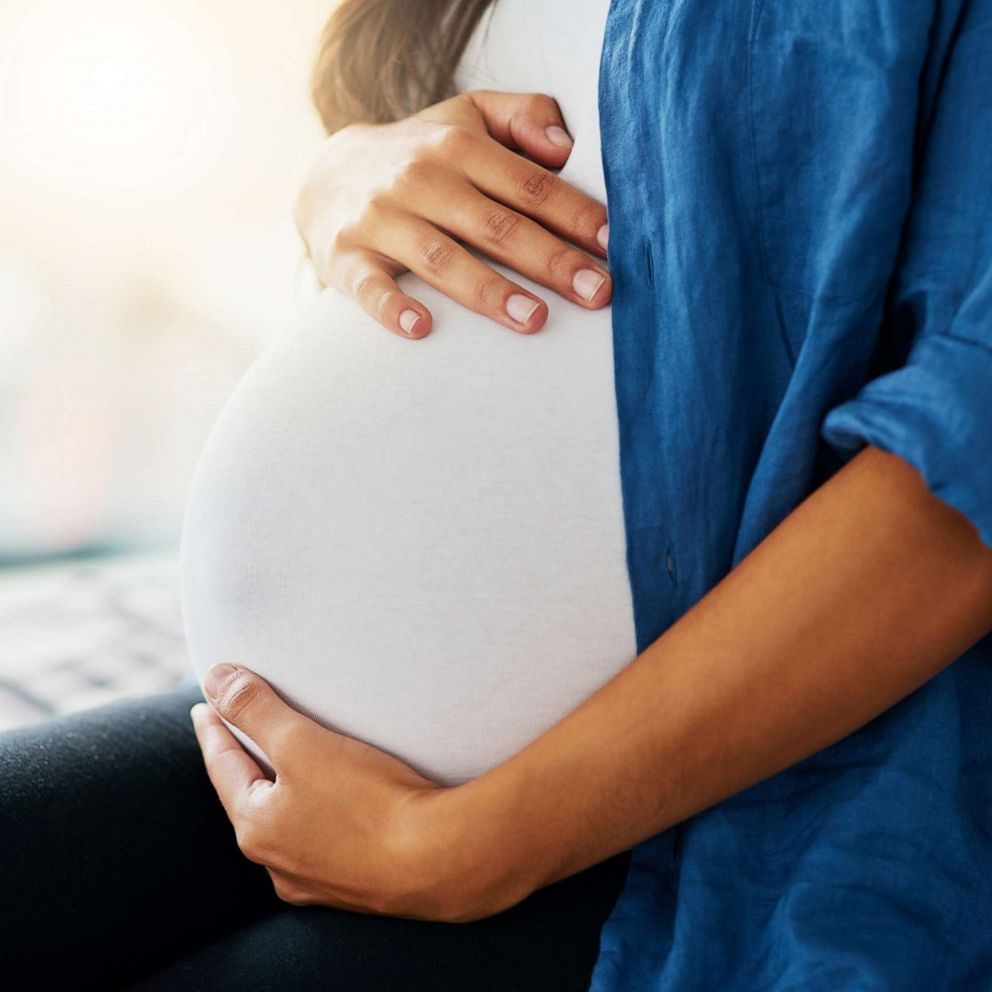How an epidemiologist plans to celebrate Halloween with his kids amid COVID-19
Here is what parents need to know about celebrating Halloween safely.
With Halloween just one day away, kids across the country are gearing up for candy and fun, while many parents are wondering how to keep their kids safe amid the coronavirus pandemic, especially while kids younger than 12 wait to be eligible for a vaccine.
The good news for families is this Halloween can be celebrated with more ease than last year, according to the nation's top infectious disease expert.
White House chief medical adviser Dr. Anthony Fauci said in a CNN interview earlier this month that kids can "go out there and enjoy Halloween," an approach he attributed to the fact that more and more people are now vaccinated against COVID-19 and that most Halloween activities, including trick-or-treating, are held outdoors.
“It’s a good time to reflect on why it’s important to get vaccinated,” he said, urging unvaccinated adults and teens to get shots before Halloween. “But go out there and enjoy Halloween.”
“This is a time that children love,” Fauci added. “It’s a very important part of the year for children.”
Dr. John Brownstein, an epidemiologist and chief innovation officer at Boston Children's Hospital, is the father of two young children. He said he also plans to have a more "normal" Halloween with his kids this year, complete with outdoor trick-or-treating.
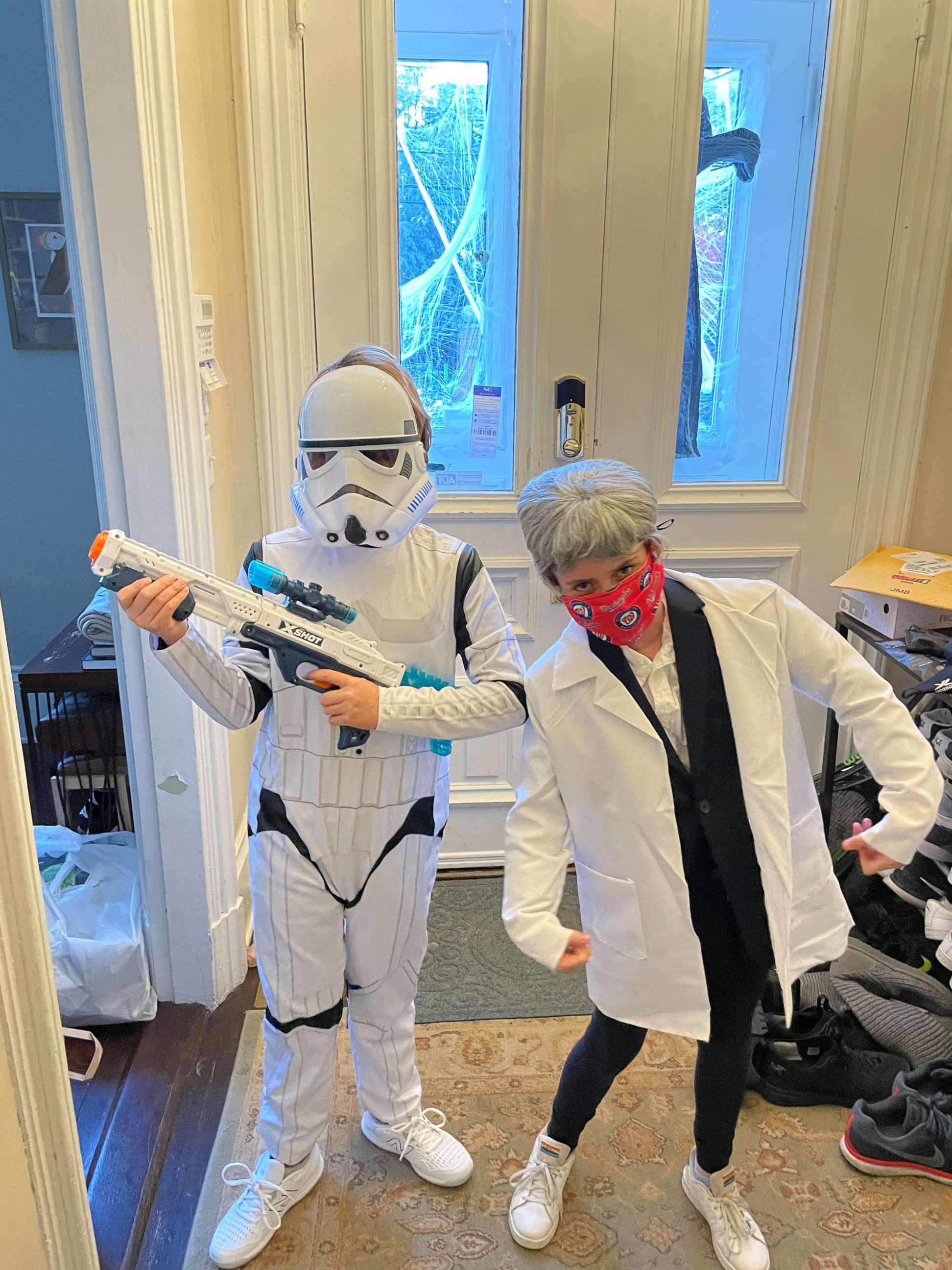
"It's safe to say that trick-or-treating is an activity that all kids can partake in," said Brownstein, who is also an ABC News contributor. "Kids can feel quite excited by the fact that I think they will have a generally normal Halloween compared to last year."
Here are four questions answered by Brownstein about how to have a safe Halloween this year.
1. Does my child need to wear a mask while trick-or-treating this year?
In most cases, no, according to Brownstein.
"Every parent has to make their own sort of risk calculation, but given where we are in this pandemic, I think, generally, mask wearing outside is probably unnecessary," he said, noting that data from nearly two years of the pandemic show that outdoor activities are "generally safe," even for children who are not yet vaccinated.
"Of course, every family should make decisions that are right for them and the underlying risks of their kids and household members," Brownstein added. "And luckily, Halloween costumes can make mask-wearing less stigmatizing."
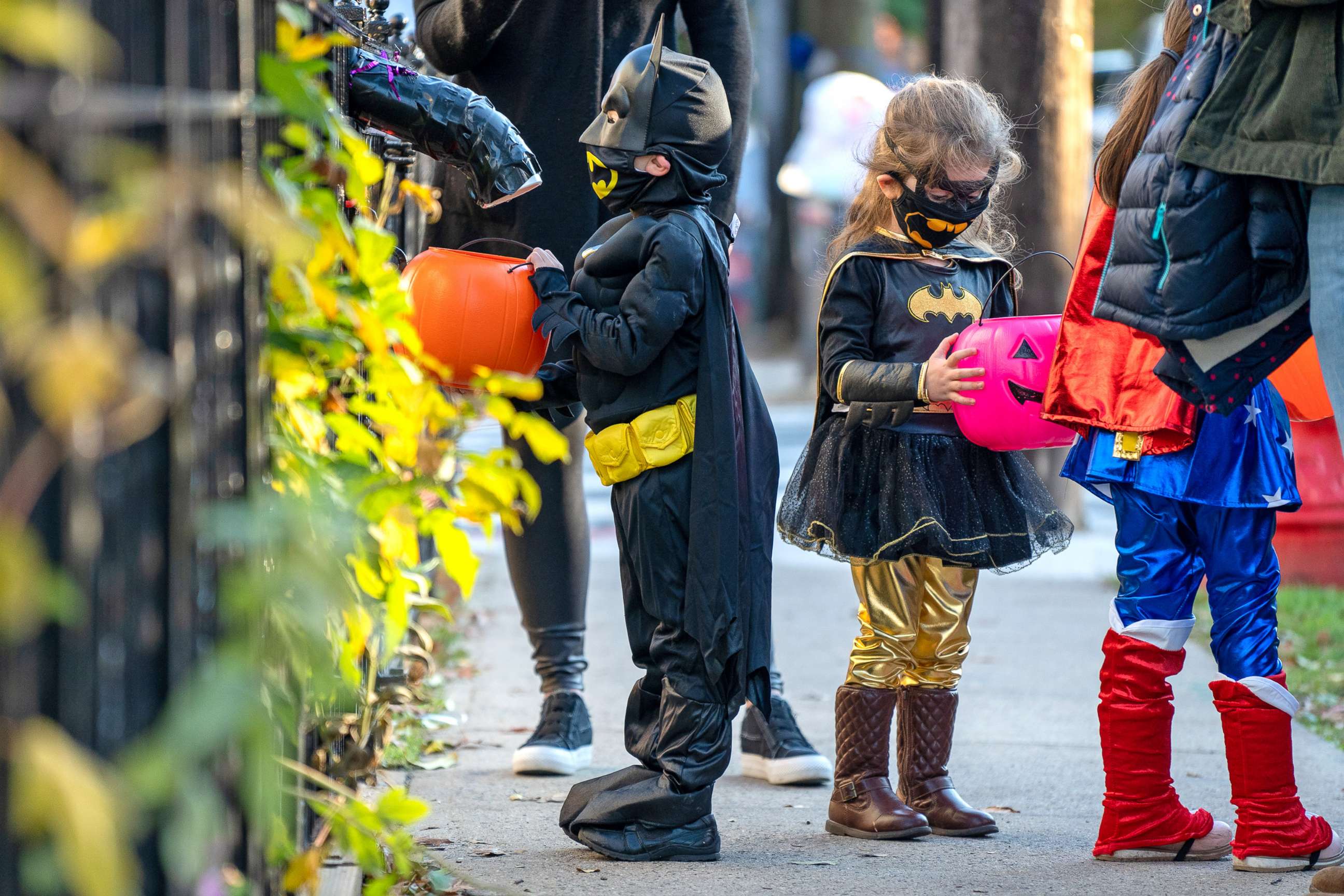
2. Are indoor Halloween events safe for my kids to attend?
While Brownstein is planning to trick-or-treat outdoors with his kids, he said they are planning to wait another year before attending big, indoor Halloween events.
"The bigger questions that come into play around indoor activities may involve unvaccinated people," he said. "That's where masking and good ventilation may be more appropriate."
Brownstein added that people who do choose to attend indoor Halloween events this year should make sure people at the event are vaccinated if they are eligible. He also suggests relying on additional layers of protection like social distancing and COVID-19 testing, in addition to masking and good ventilation.
3. Should my family use rapid tests? Are they reliable?
Brownstein said that in addition to vaccination, another major difference between this Halloween and last is that rapid tests are now widely available for use and are particularly smart for indoor events.
"Because rapid tests are becoming more and more pervasive, we should all be using them as a tool to limit the risk to unvaccinated people or the risk of breakthrough infections," said Brownstein. "Within a short time frame of an event, taking a rapid test, while not 100% foolproof, will give some good reassurance that you're not putting other people at risk by joining an indoor event."
"I have a bunch on hand at home, ready to use as needed, so I think those are incredibly effective," he said.
4. Does a 'normal' Halloween mean we'll also have a 'normal' Thanksgiving and Christmas?
Brownstein said he is hopeful that more and more families and friends will be able to spend the holidays safely together this year, but stressed the importance of maintaining good public health practices to keep everyone safe, especially since the upcoming holidays typically involve more travel and time spent indoors.
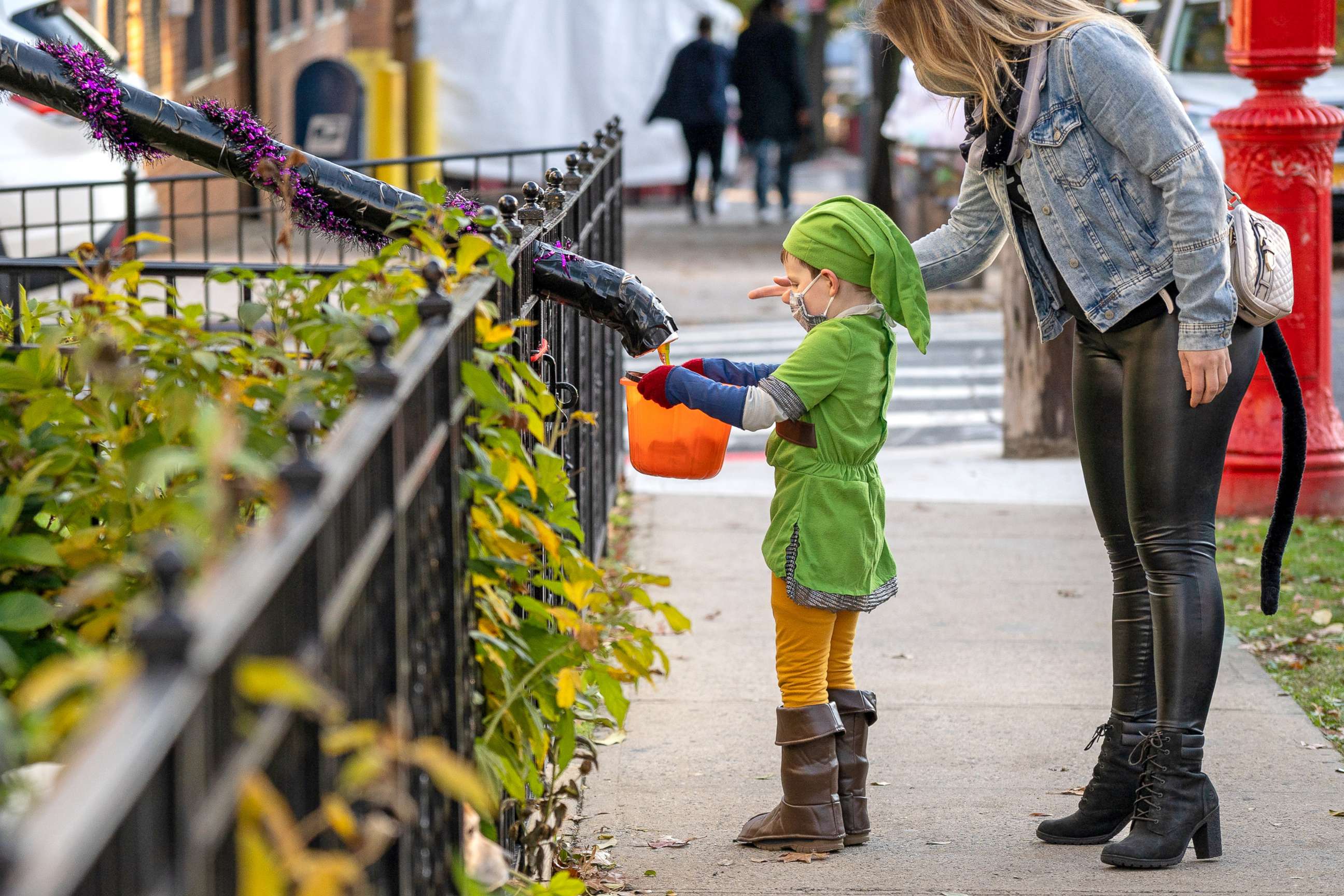
"While this holiday means that we can gather more seamlessly and in a slightly more normal way, there are small things that we can all do to try to limit transmission," he said, citing masking as a critical tool. "Transmission takes place through droplets and aerosols so whatever we can do to limit transmission will ultimately have a direct impact on whether we see a surge post-holiday."
He added, "As we know, those surges can lead to even more significant public health measures that we're all trying to avoid, so the small things we do during the holiday can mean even a more enjoyable life post-holiday."
